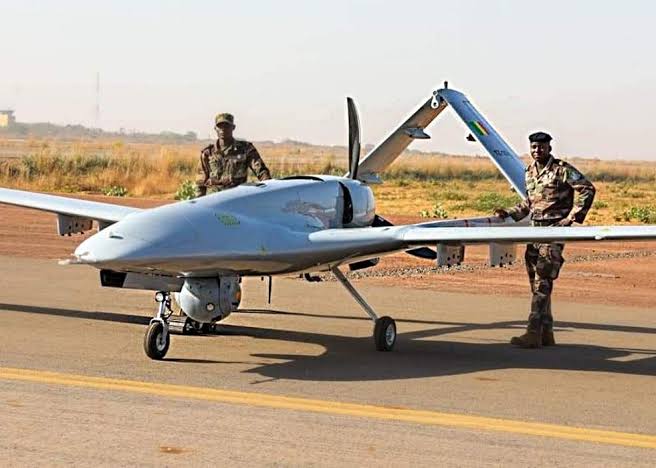Rights Group Probes Military Drone Attack Targeted at Civilians in Mali
The airstrikes, which took place on October 21, targeted a busy market, leaving at least eight people dead, including children.

Amnesty International, a global human rights group, has charged government authorities to investigate the lethal drone strike that killed eight civilians, including six children, in the Inadiafatane town of Mali.
In a report published on Nov. 5, the group described the attack as evidence of the military’s indifference in its operations, which ultimately led to the deaths of the very civilians it was meant to protect.
The airstrikes, which took place on Oct. 21, targeted a busy market, leaving at least 15 civilians wounded. The report emphasised that the attack could constitute a war crime, given the indiscriminate targeting of civilians and non-military infrastructure.
Witnesses at the scenes of the devastating attack said the drone strikes repeatedly struck areas frequented by civilians, with the initial explosion destroying five motorbikes parked under a market shed and killing several people instantly. The second air strike hit a trader’s vehicle, while the third one destroyed another car – all within the busy marketplace. Among the victims were a four-month-old baby and a six-year-old girl, indicating the indiscriminate nature of the strikes.
Samira Daoud, Amnesty International’s Regional Director for West and Central Africa, noted that it is important for military operatives in the country to distinguish between military and civilian targets in conflict zones.
“The principle of distinction is essential in guiding the selection of military objectives. Drone strikes must clearly distinguish between civilians and military personnel or fighters belonging to armed groups,” she stated, pondering over the military’s precautions measures.
A survivor of the attack, who lost four relatives, described the harrowing scene as the drone lingered over the market before dropping explosives, forcing civilians to flee into the bush. Unfortunately, several died before reaching hospitals, according to the report.
Amnesty International stressed that the incident is part of a broader pattern of civilian casualties linked to drone strikes in Mali. In March, similar strikes killed civilians in Amasrakadh and Douna, claiming the lives of over two dozen people, including children.
The human rights think tank, however, urged authorities in Mali to clarify their rules of engagement concerning drone warfare, particularly the measures taken to prevent civilian harm, noting that the recent attacks have heightened fear and mistrust of government forces among the local population.
Nigeria has similar cases of military operation glitch, causing the death of unarmed civilians. In December, 2023, for instance, a military drone attack occurred in Kaduna, resulting in significant civilian casualties, aftter the Nigerian army mistakenly targeted a village during a religious celebration.
The combat drone killed at least 85 people, including children, women, and the elderly; it also injured 66 others and destroyed nearby buildings. The tragic event provoked concerns about the Nigerian military’s use of drones in conflict zones. Human rights organisations also criticised the military’s actions, citing the need for accountability and protection of civilian lives.
Amnesty International has called on the Malian government to investigate a drone strike that killed eight civilians, including six children, in Inadiafatane town. The attack, which occurred on October 21, targeted a busy market and left at least 15 people wounded.
Amnesty highlighted the military's failure to distinguish between civilians and military targets, resulting in potential war crimes due to indiscriminate attacks on civilian areas.
Witnesses reported three separate drone strikes in the market area, causing significant destruction and fatalities among non-combatants, including a four-month-old baby and a six-year-old girl. The incident is part of a pattern of civilian casualties from drone strikes in Mali, which Amnesty suggests heightened local fears and mistrust of government forces.
The organization urges Mali to clarify drone warfare rules to prevent further civilian harm and stressed the international norm of distinguishing military targets from civilians in conflict scenarios.
Support Our Journalism
There are millions of ordinary people affected by conflict in Africa whose stories are missing in the mainstream media. HumAngle is determined to tell those challenging and under-reported stories, hoping that the people impacted by these conflicts will find the safety and security they deserve.
To ensure that we continue to provide public service coverage, we have a small favour to ask you. We want you to be part of our journalistic endeavour by contributing a token to us.
Your donation will further promote a robust, free, and independent media.
Donate HereStay Closer To The Stories That Matter




